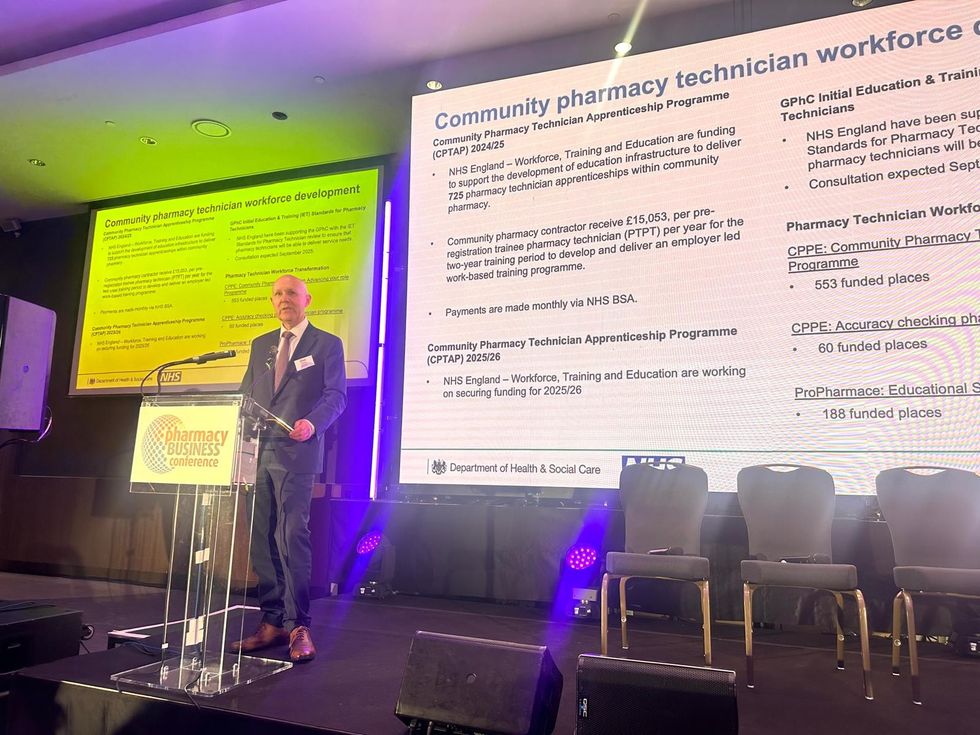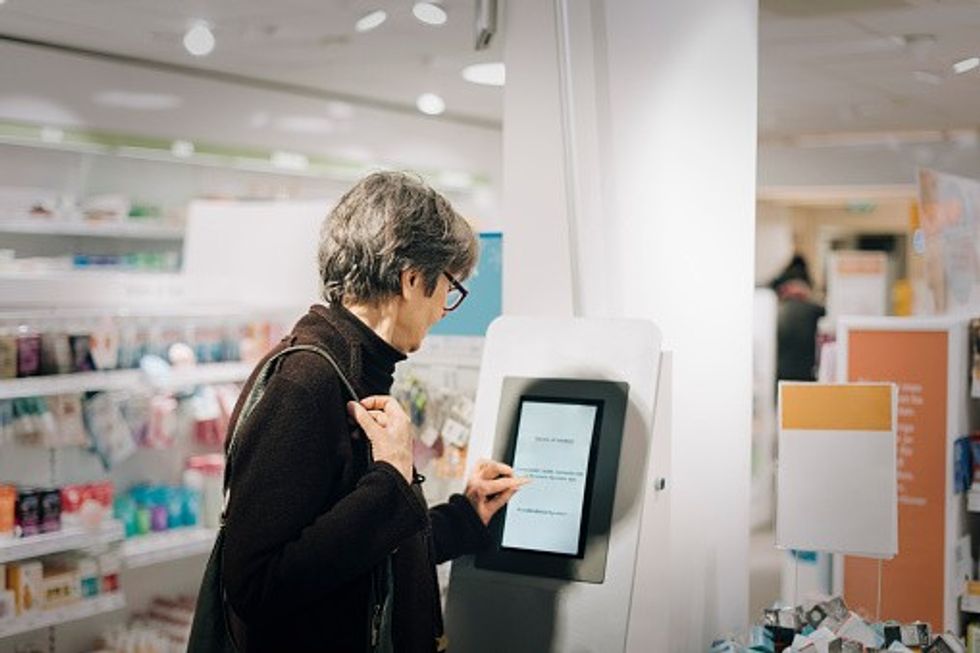By Cyrus Hodivala
Community pharmacies are located within the very hotspots of peoples’ communities, yet a staggering 720 individual businesses have stopped trading since 2015. It has been called a “national disgrace and a betrayal to the elderly and the vulnerable” by sector leaders.
The funding crisis has been compounded by a grueling 18-24 months post-Covid, both have which have placed immense pressure on the retail pharmacy sector.
The population is aging and with this comes patients living with a range of long-term health conditions. Medication regimes are becoming ever more complex and as a result, maintaining prescription and medication adherence services is challenging to say the least.
Yet the public feel great warmth towards their local pharmacy businesses, and this positive attitude only increased during the pandemic. In fact, in a recent report launched by Omnicell on the Changing Role of the Pharmacist, a survey of public opinion found that a third (32 per cent) said they perception of their local pharmacy had changed for the better since the start of the pandemic and nearly half (44 per cent) said they are more familiar with their local pharmacy services since the start of COVID.
This has meant that the role of the pharmacist has also changed and evolved; in part due to a national need and drive for more patients to be seen and supported clinically by pharmacists.
This change of service provider role has slowly been developing over the last couple of years. Pharmacists are currently carrying out 65 million consultations a year – a staggering rise of 44 per cent in the last 24 months alone.
At the end of last year, NHS England published the priorities and operational Guidance for 2023/4. Amongst this, were three key tasks for completion over the two-year period. The first of these, which NHSE deemed an immediate priority was ‘to recover [the NHS’s] core services and productivity’, including via the ‘essential action’ of ‘increasing use of community pharmacies’.
The guidance went onto add that moving to self-referral for many community services where GP intervention is ‘not clinically necessary’ will be essential for achieving these priorities.
Making it easier for people to access primary care services will be imperative to recovering core services and productivity, the document added, as this will ‘improve patient safety, outcomes and experience’. In other words, the changing role of the pharmacist is becoming part of the NHS fabric and intrinsically linked to its survival.
It’s no surprise that some pharmacists are feeling overwhelmed and due to these work pressures and lack of support, are feeling disillusioned with their jobs. In fact, according to a recent report by the Royal Pharmaceutical Society, 82 per cent of pharmacists are thinking of leaving the profession in the next few years, such is the physical and emotional toll of the role.
So, exactly, how can pharmacies survive in this environment and keep their heads above water? Like many other areas of the NHS, the only option will be to harness new technology and introduce automated solutions. It’s simply not possible to manage the ever-increasing number of complex prescriptions, workloads, and additional clinical services without harnessing technological advancements, whatever the business model.
In positive news, Jeremy Hunt’s budget also offers businesses incentives to invest in capital, such as new technology, and aims to replace the super deduction tax scheme ending this March. This replacement scheme is a three-year ‘full expensing’ regime which started last month.
Full expensing will allow companies across the UK to write off the full cost of qualifying plant and machinery investment in the year they invest. It can be deducted ‘in full and immediately’ from taxable profits. The chancellor said he hopes to make the scheme permanent ‘when fiscal conditions allow’. The Office for Budget Responsibility (OBR) has said that full expensing will help boost business investment by almost 3.5 per cent in 2024-25 and 2025-26.
There are now a wide range of options in terms of technology to help pharmacies drive efficiencies and gain a competitive advantage via increased customer loyalty, by freeing up pharmacy time to allow staff to spend more time with customers as well as exploring additional clinical services and revenue streams.
Historically, robotic solutions have in part been targeted at more medium to larger pharmacies and multiples, but Omnicell is introducing a new JVM which is smaller in size and comes at a lower price point so could be better solution for those smaller pharmacy businesses wanting to keep up with the larger players in the market.
Technology can support pharmacies in three key ways:
- Stock management and pack handling starts at the back door when medications arrive, with efficient loading and storing of packs using robotic technology, such as the Omnicell Medimat. This robot stores and counts all packs received, giving the pharmacy team a complete overview and insight of everything in stock.
- Packing and pharmacy checking via the accurate packing and filling of blister packs with robots like the Omnicell VBM or the new JVM machine at a lower price point for smaller pharmacies. These solutions free up pharmacy staff time, yet are more effective than relying on manual process to support patient medication adherence and ensure that the right medication, of the right dose, reaches the patient at the right time. Both robotic options can link to the Patient Medicines Record system (PMR), so pharmacists will know exactly what medication they have packed and dispensed, for which patient and when.
- And finally, through a safe and secure collection point via Omnicell’s Pharmaself24, a 24-hour automated prescription collection kiosk, reducing queues at peak times and allowing patients to pick up their medicines when it suits them
The ultimate goal of automation, is to achieve zero errors and zero waste through complete pharmacy automation, enabling teams to maximize their staffing resource to be able to focus on face-to-face patient care and alternative revenue streams. This efficiency will also boost patient safety, through the reduction of medication errors.
In this ever-changing dynamic market, retail pharmacy will seriously need to look at these ways to automate services to ‘weather the storm on the high street’. Technology will enable teams to explore new revenue streams and support the local community via an increase in the provision of clinical services.
Cyrus Hodivala is commercial director at Omnicell UK & Ireland.








 Health Secretary Wes Streeting addresses Pharmacy Conference via video
Health Secretary Wes Streeting addresses Pharmacy Conference via video  David Webb, chief pharmaceutical officer of NHS England
David Webb, chief pharmaceutical officer of NHS England Shailesh Solanki, executive editor of Pharmacy Business
Shailesh Solanki, executive editor of Pharmacy Business L-R: Yasmin Karsan, Pritee Panchmatia and Fin McCaul
L-R: Yasmin Karsan, Pritee Panchmatia and Fin McCaul  L-R: Baba Akomolafe, Rachna Chhatralia, Patricia Tigenoah-Ojo and Raj Matharu
L-R: Baba Akomolafe, Rachna Chhatralia, Patricia Tigenoah-Ojo and Raj Matharu L- R: Nicola Stockmann, Robert Townsend, Atul Patel and Amerjit Singh
L- R: Nicola Stockmann, Robert Townsend, Atul Patel and Amerjit Singh Wole Ososami, lead pharmacist at Westbury Chemist
Wole Ososami, lead pharmacist at Westbury Chemist








 A woman using kiosk at pharmacy store gettyimages
A woman using kiosk at pharmacy store gettyimages  Pharmacist examining commissioning machine in pharmacy gettyimages
Pharmacist examining commissioning machine in pharmacy gettyimages